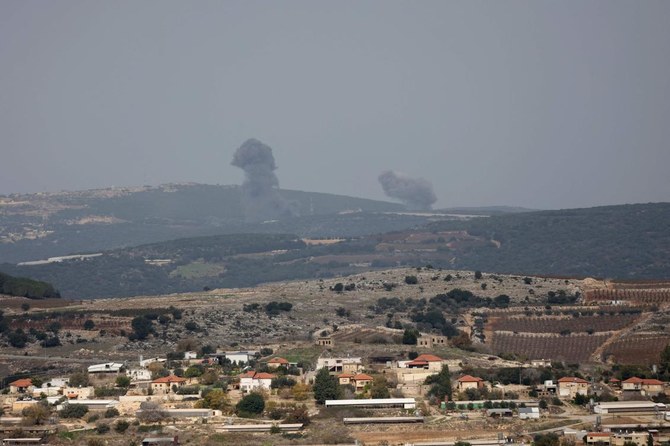JERUSALEM: The Israeli army said on Wednesday it was reviewing a strike that harmed Lebanese troops in south Lebanon, an apparent reference to Israeli shelling that killed a Lebanese soldier and wounded three others the previous day.
“The Lebanese Armed Forces were not the target of the strike. The IDF expresses regret over the incident. The incident is under review,” the Israeli military said in a statement.
Israel and the heavily armed Lebanese group Hezbollah have been exchanging fire across the Lebanese-Israeli border since the start of the war between the Palestinian group Hamas and Israel on Oct. 7.
The Lebanese army said the soldier, a sergeant, was killed when an army position was shelled by Israel on Tuesday.
The Israeli army said its soldiers had acted in “self defense to eliminate an imminent threat that had been identified from Lebanon” from a “known launch area and observation point” used by Hezbollah.
The UN peacekeeping force in Lebanon UNIFIL noted in a statement on Tuesday it was the first Lebanese army soldier killed during the hostilities, and that the Lebanese army had not engaged in conflict with Israel.
Israel reviewing strike that harmed Lebanese troops, army says
https://arab.news/pm4wf
Israel reviewing strike that harmed Lebanese troops, army says

- Lebanese army say the soldier, a sergeant, was killed when an army position was shelled by Israel on Tuesday
Israel agrees to ‘limited reopening’ of Rafah crossing: PM’s office

- The announcement came after visiting US envoys reportedly pressed Israeli officials to reopen the crossing, a vital entry point for aid into Gaza
JERUSALEM: Israel said Monday it would allow a “limited reopening” of the Rafah border crossing between Gaza and Egypt once it had recovered the remains of the last hostage in the Palestinian territory.
The announcement came after visiting US envoys reportedly pressed Israeli officials to reopen the crossing, a vital entry point for aid into Gaza.
Reopening Rafah forms part of a Gaza truce framework announced by US President Donald Trump in October, but the crossing has remained closed after Israeli forces took control of it during the war.
The Israeli military also said it was searching a cemetery in the Gaza Strip on Sunday for the remains of the last hostage, Ran Gvili, a non-commissioned officer in the police’s elite Yassam unit.
Prime Minister Benjamin Netanyahu’s office said the reopening would depend on “the return of all living hostages and a 100 percent effort by Hamas to locate and return all deceased hostages,” Netanyahu’s office said on X.
It said Israel’s military was “currently conducting a focused operation to exhaust all of the intelligence that has been gathered in the effort to locate and return” Gvili’s body.
“Upon completion of this operation, and in accordance with what has been agreed upon with the US, Israel will open the Rafah Crossing,” it said.














